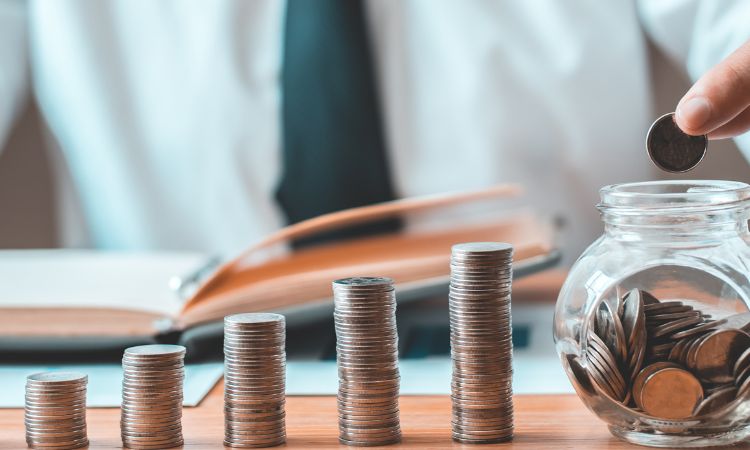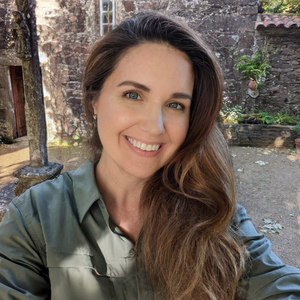Robert Kiyosaki’s book, Rich Dad, Poor Dad (affiliate link), has become one of the most popular financial books of all time. In it, he chronicles his journey from growing up with a poor father to becoming a successful entrepreneur and investor.
While some have criticized the book for its simplistic approach to personal finance, there are many valuable lessons that can be gleaned from Kiyosaki’s story. In this blog post, we’ll take a look at some of the key concepts from Rich Dad, Poor Dad and what they can teach us about building wealth.
The importance of financial literacy
Robert Kiyosaki’s book, “Rich Dad Poor Dad,” made financial literacy a household phrase after it was published in 1997. However, the importance of understanding and managing money is nothing new. Financial literacy has been an essential life skill for generations, but more and more, it is seen as necessary for achieving true financial freedom.
Learning about taxes, debt management, budgets, investments and retirement planning are just some of the many topics that need to be mastered in order to reach a secure place financially. With this knowledge and confidence comes increased independence and greater control over one’s future.
Knowing that you have options when faced with life’s financial considerations can lead to a positive attitude towards finances rather than letting fear or ignorance drive decision-making. It is clear that Robert Kiyosaki wasn’t joking when he said “the more you learn, the more you will earn.”
Knowledge really is power when it comes to securing one’s financial freedom.

How to make your money work for you
Making your money work for you is an important step in financial planning. The key to accomplishing this goal is to have a plan – decide what you want and need, research ways to meet that goal, set reasonable achievable objectives and review them frequently.
A great place to start is by creating an emergency fund for unexpected expenses. It’s also important to make the most of investment opportunities, such as stocks, bonds or mutual funds.
When shopping for investments ensure you are making informed decisions based on research rather than impulsivity.
Finally, developing a budget that allows you to save and track your spending can help keep your finances on track towards achieving your long-term goals. With dedication and smart strategies in hand, utilizing your resources can help build a strong foundation for financial security in the future.

The difference between an asset and a liability
Robert Kiyosaki, author of Rich Dad, Poor Dad, highlighted the importance of understanding the differences between an asset and a liability. An asset is something that puts money in your pocket, such as a rental property or stocks.
On the other hand, a liability takes money out of your pocket each month with no return, such as car payments or credit card expenses. For those looking to build wealth and create passive cash flow using investment vehicles like real estate, it’s important to understand these two concepts and how they work together.
Knowing this difference was an integral part of Kiyosaki’s message in Rich Dad Poor Dad and other books he published.
The power of passive income
Rich Dad Poor Dad, the best-selling personal finance book written by Robert Kiyosaki, contains practical advice for creating financial freedom through passive income. The book emphasizes the power of passive income to break free from the Rat Race and to enable individuals to “choose one’s own lifestyle without being limited by lack of money.”
Passive income enables people to make money without active participation in their investment or business activities. When done correctly, this type of income can provide more financial stability, giving people the opportunity to spend time later on in life doing things they truly enjoy while still being able to maintain a comfortable lifestyle.
Rich Dad Poor Dad advocates that every person should attempt to acquire as much passive income as possible and encourages individuals to think outside of the box when it comes to creating new sources.
Why you should start investing early
Rich Dad, Poor Dad by Robert Kiyosaki is a powerful reminder of why it’s essential to start investing early in life.
The old adage “time is money” couldn’t be more true, when it comes to building wealth through investment. Those who are starting out early have the advantage of harnessing the power of compounding returns over many years, vastly increasing their net worth than if they had started later in life.
Additionally, beginning investments before lifestyle inflation sets in can help maintain lower risk appetite and avoid overindulgent spending. Rich Dad, Poor Dad serves as an eye-opening perspective for all aspiring investors or entrepreneurs everywhere – start investing with what you have now and you’ll never regret it!
The importance of diversifying your investments
Rich Dad Poor Dad by Robert Kiyosaki is a great reminder of the importance of diversifying your investments. By spreading out investments across different securities and areas, you reduce risk by ensuring your wealth does not dip if one particular sector fails.
In the book, Rich Dad advises his friend to spread his investments across real estate, stocks, bonds, cash accounts and equity mutual funds, as well as ensure that taxable and tax-free accounts are balanced against each other. Through investing in diverse sectors with different risks and returns, Rich Dad reminds us that we can protect our finances from drastic changes in any one area.
Rich Dad, Poor Dad is a powerful book that provides readers with valuable lessons on financial literacy. By teaching us the importance of making our money work for us and investing early, Robert Kiyosaki helps set us up for success in our future lives.
These concepts are critical to understand if we want to achieve financial stability and build long-term wealth. If you have not read Rich Dad, Poor Dad, I highly recommend that you do – it will change the way you think about money forever.

Erika Finn, founder of Stacking Acorns, is an attorney who graduated from law school at University of California, Berkeley. She was a member and editor of the California Law Review and won the Prosser Prize for Legal Accounting. She holds a Master’s Degree from the University of Southern California (USC) and a Bachelor’s degree from Indiana University- Bloomington. Stacking Acorns is a personal finance website for women by women. We help mid-life women achieve financial freedom through real estate investing and other streams of passive income.